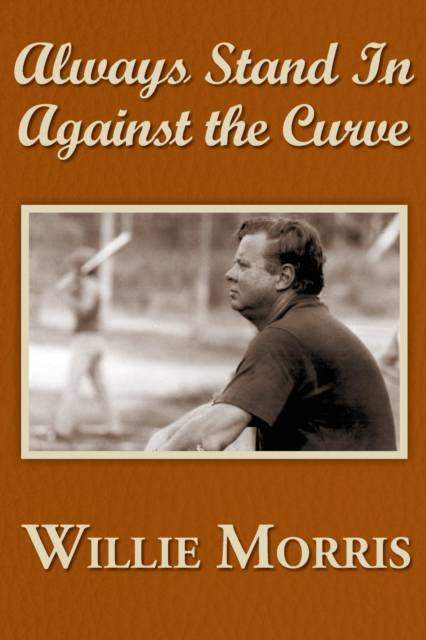
- Retrait gratuit dans votre magasin Club
- 7.000.000 titres dans notre catalogue
- Payer en toute sécurité
- Toujours un magasin près de chez vous
- Retrait gratuit dans votre magasin Club
- 7.000.000 titres dans notre catalogue
- Payer en toute sécurité
- Toujours un magasin près de chez vous
Description
Willie Morris's collection of sports stories, Always Stand In Against The Curve, is a book for those of us lucky enough to have shot baskets under a driveway or shagged fly balls in open fields until it was too dark to see the hoop or the ball against the sky. In Morris's soulful point of view, sports is about growing up in America, radio broadcasts of the Brooklyn Dodgers in a Mississippi country store, girls with double names, practical jokes, small town coaches, the hold the past has on us, about running effortlessly in the sun. The novella, "The Fumble," is a sports classic about high school football in the Deep South. Set in the 1950s it describes a confrontation of mythic proportions between a small town football team from the "Delta" and the omnipotent Central High Tigers of Jackson, Mississippi. Each of the six autobiographical essays in this book form chapters of a Great American boyhood, beginning with Morris's farewells to high school and to American legion baseball, a road trip to Notre Dame with "Bevo," the University of Texas longhorn steer mascot, Rhodes scholars playing basketball in England, a writers-and-artists softball game in East Hampton, New York, in which the author admits he is too old to run the bases, and finally a journey back to Austin, Texas, in search of the past. To Willie Morris, sports are a gentle center in the eye of the storm, a clean world of instinct and action where one can work out the bruises of living, where the rituals of youth teach valuable lessons about winning and losing, about heroes and disillusionment, about finding a way to face the world.
Spécifications
Parties prenantes
- Auteur(s) :
- Editeur:
Contenu
- Nombre de pages :
- 152
- Langue:
- Anglais
Caractéristiques
- EAN:
- 9780916242251
- Date de parution :
- 08-12-16
- Format:
- Livre broché
- Format numérique:
- Trade paperback (VS)
- Dimensions :
- 157 mm x 234 mm
- Poids :
- 412 g







